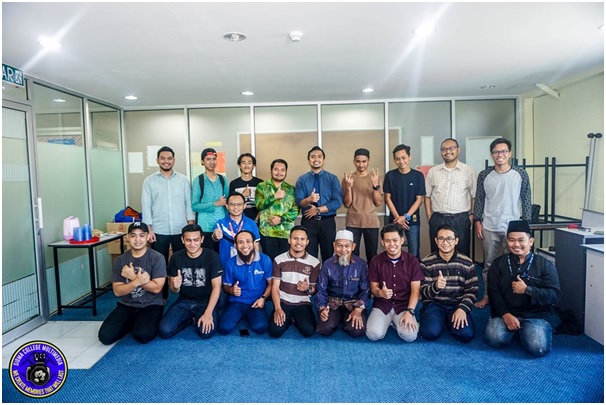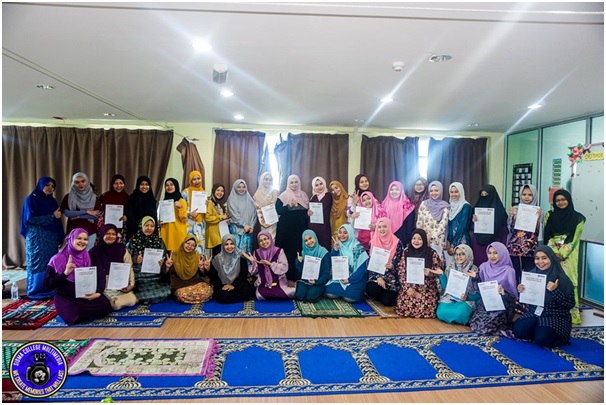


SIDMA College Jamiatul Fathi Madrasah organized a one day short course to prepare SIDMA Muslim community about the rituals and rites when preparing and sending off family members who have passed. The one day program held at SIDMA Atrium and Surau on 26 September 2019 taught the participants to look at the custom and rituals regarding on how to handle the body appropriately and to address the spiritual fate of the deceased or praying for the soul.
Two key speakers, Ustaz Jasimin Bin Haji Mohd Rashid and Ustazah Lilis Mulyani Binti Mamun, both from Jabatan Hal Ehwal Agama Islam Negeri Sabah (JHEAINS) were specially invited to share and immersed the 60 registered participants on the obligatory of Muslim funeral rituals (fardhu kifayah). The participants were mainly the staff and students of SIDMA College. There were also participants from the general public, including a few students from Institut Latihan Perindustrian (ILP). They were split into two groups; the male participants were placed in the Male Surau, while the ladies had their session in the Female Surau.
According to Islam, when someone passes away, one will naturally be sorrowful, but is discouraged from crying too much. Muslims need to recite the Surah Yassin, to pray for the soul of the deceased. As death is part of a life cycle predestined by Allah the Almighty, thus the body of the deceased must be treated with honour and reverence, and handled gently with utmost care at all time, the speakers explained. The sharing session focused on three main areas: (i) washing and shrouding the body of the deceased; (ii) performing the funeral prayer; (iii) the burial process.
The washing and shrouding of the deceased’s body is known as the ghusl procedure, and is performed preferably by the family members of the same gender, according to Islamic rites.
After the shrouding process is completed, the kafan process will be next. Here the deceased is wrapped in plain white cotton cloth that has been coated with camphor, powdered sandalwood and non-alcoholic perfume. This is to protect the deceased’s privacy and dignity.
Upon ghusl, a congregation is then formed so the jenazah prayer for the deceased can be performed. The jenazah prayer will be led by an Imam, facing the Qiblat (direction of Mecca), usually at home or at the mosque. After the prayer, the body is brought to the cemetery in a coffin for burial.
The burial process involves gently lowering the body into the ground; without the coffin and with the deceased facing the Qiblat. The grave is then fully covered with soil. The completion of the burial process is followed by a talkin, a funeral sermon that will be read at the grave of the deceased.
The speakers, both the Ustazah and Ustaz immersed the participants with discussion and hands-on activities, giving opportunities to share their knowledge and skills with their friends. The speakers ended the sharing session with discussion on the post-funeral rituals that is the organizing of tahlil on the 3rd, 7th, 40th and 100th days after the funeral. The tahlil comprises of prayers for the deceased, and usually followed by a simple meal prepared by the bereaved family.
At the end of the course, all participant received certificate of attendance from the organizing committee. Overall, the participants are satisfied with the organizer for the on the whole as not only the course was conducted professionally but SIDMA College only charge a minimal fee of RM5 with no compromise on the quality.
For more information regarding the college’s various programme and activities, visit its official Facebook and Instagram pages (SIDMA College) or contact us at 088-732000 or 088-732020.
By,
Teo Eng Seng and Zain Azrai,
SIDMA College Sabah,
88300 KOTA KINABALU.



